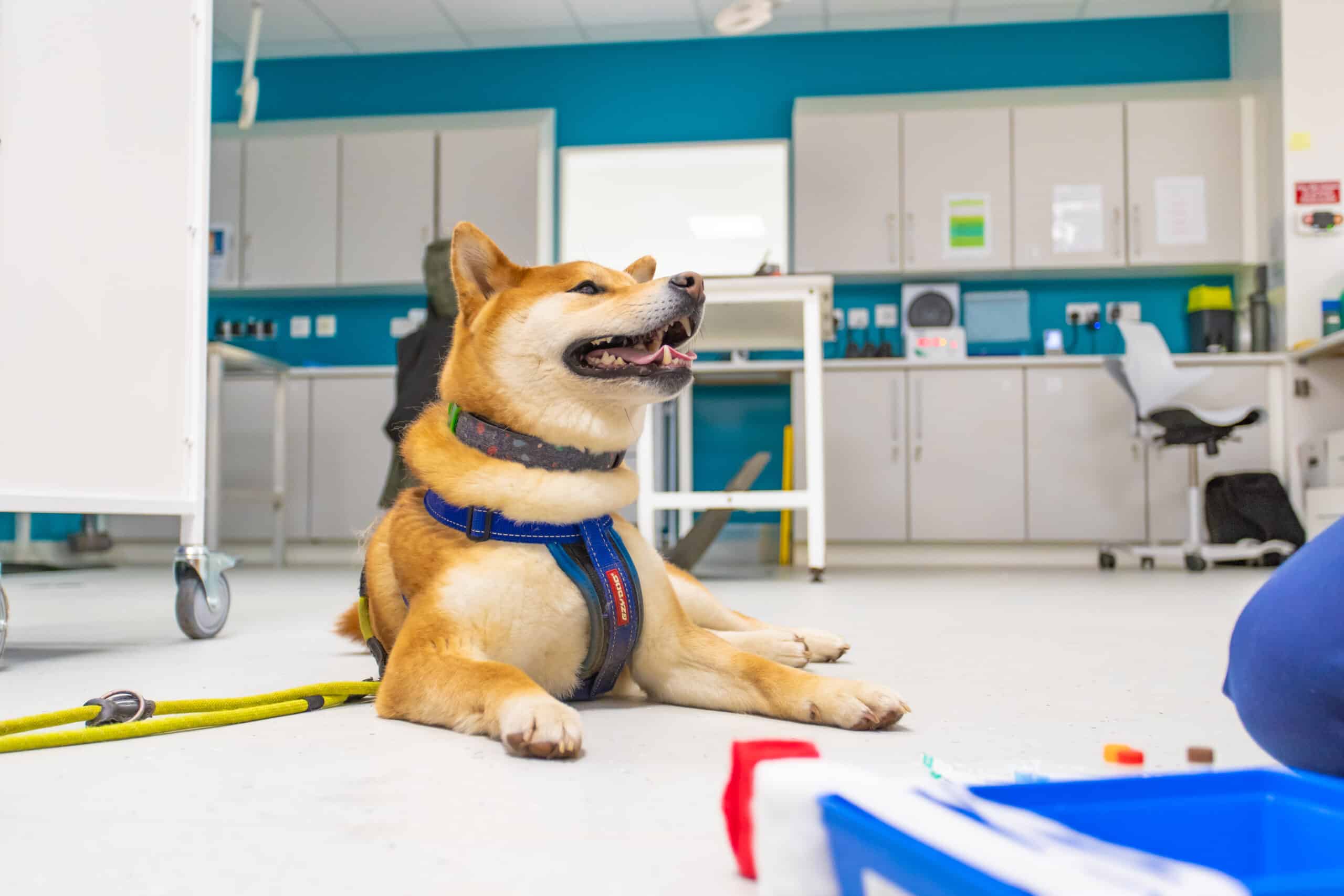Veterinary pain management clinic specialises in the diagnosis and management of chronic pain in pets. Specialists in Veterinary Anaesthesia and Analgesia working in a pain clinic collaborate with pet owners to control pain with the aim of improving their pet's quality of life.

What is Chronic Pain?
Chronic pain is a long-lasting pain that persists beyond the usual recovery period after an injury or surgery. It can also be associated with chronic health conditions, such as osteoarthritis, chronic otitis, or neurological disorders. Chronic pain can be intermittent or continuous and lasts for weeks or months even after the initial injury has healed. Most importantly, chronic pain negatively affects the quality of life of pets, hindering their ability to live happily and perform their normal bodily functions.
Since pets cannot tell us how they feel, recognizing behavioural signs associated with chronic pain is important. These signs include:
- Decreased activity or reluctance to play
- Difficulty getting up or down stairs
- Licking or chewing at a specific area
- Whining or vocalizing more often
- Change in appetite or sleep patterns
- Irritability or aggression
- Decreased grooming
Conditions which can cause chronic pain in dogs and cats are:
- Muscular and skeletal (e.g., hip dysplasia, degenerative joint disease, tail injuries)
- Dermatological (e.g., otitis, pruritus, pododermatitis)
- Dental (e.g., gingivitis, stomatitis, oral abscess)
- Tumours (e.g., osteosarcoma, multiple myeloma, soft tissue sarcomas)
- Neurological (e.g., degenerative disc diseases, degenerative myelopathy)

How does the Pain Management Clinic work?
Once referred to the pain management clinic service by your veterinarian, we will conduct a first assessment by taking a full and detailed medical history, making notes on past and current medications and their effects, any changes in your pet's behaviour, appetite, mobility, gait, and sleep routine.
A full physical examination will be carried out with the use of tools specific designed to investigate further the symptoms that your pet is experiencing. More specifically, von Frey filaments, pain scoring scales and questionnaires validated for chronic pain will be used.
Based on the results and information above, we will discuss and develop a personalized pain relief plan specific to your pet's needs. The plan may involve additional diagnostic tests, such as blood work, diagnostic imaging (e.g., CT or MRI scans, radiographs). The plan will usually be based on a multimodal approach, and it may involve administering pain relief medication, ultrasound-guided regional blocks, specific drugs administered through epidural injections under general anaesthesia, acupuncture, or physiotherapy (laser and/or hydrotherapy).
We will teach you on how to monitor your pet at home. During the follow-up appointment, we will discuss the treatment's progress and adjust, if necessary, depending on your pet's individual needs. Your contribution is essential to the success of this plan, as you know your pet better than anyone else.
Team Members

Valentina Campoli









